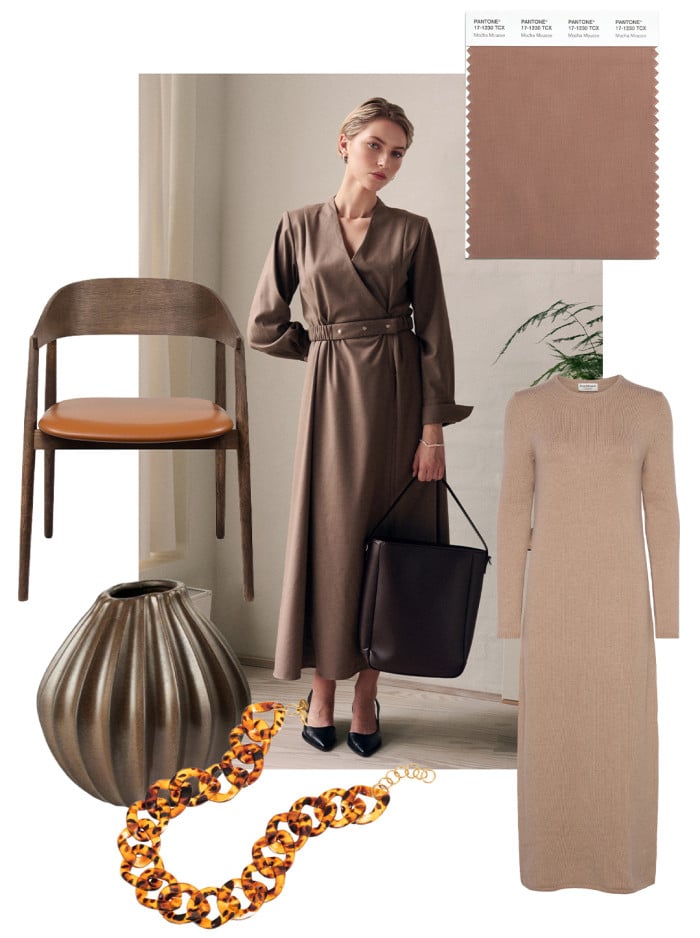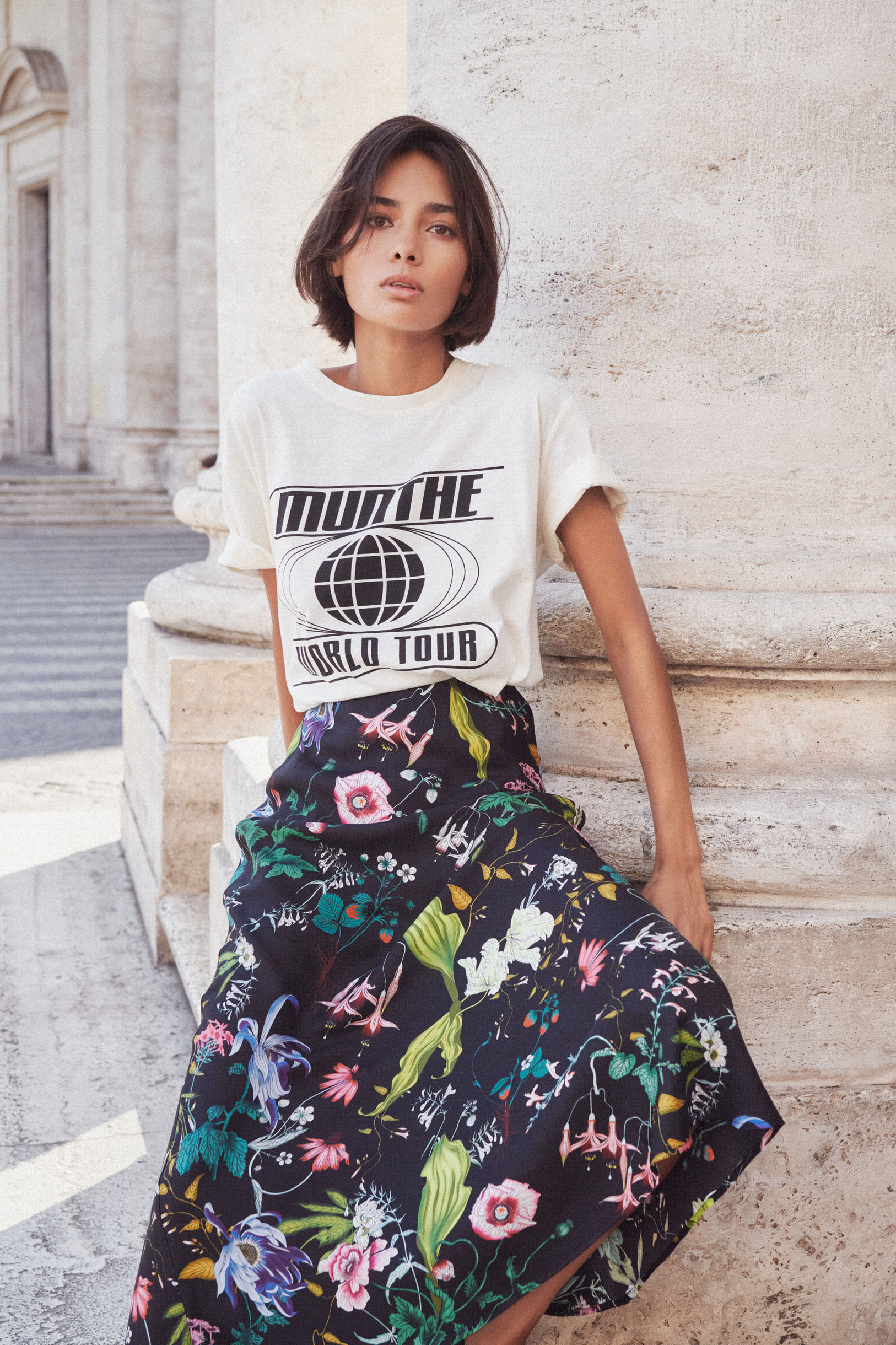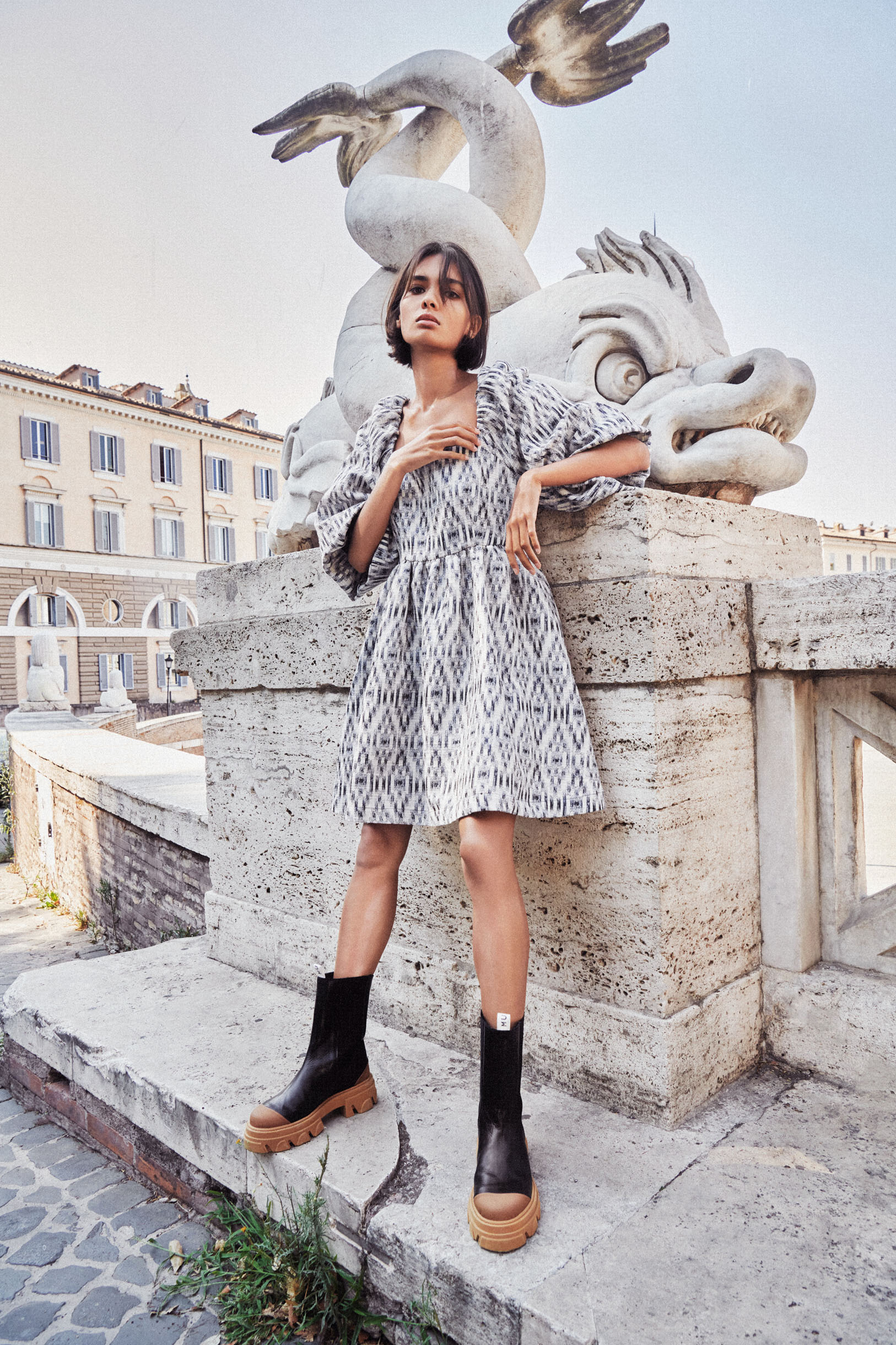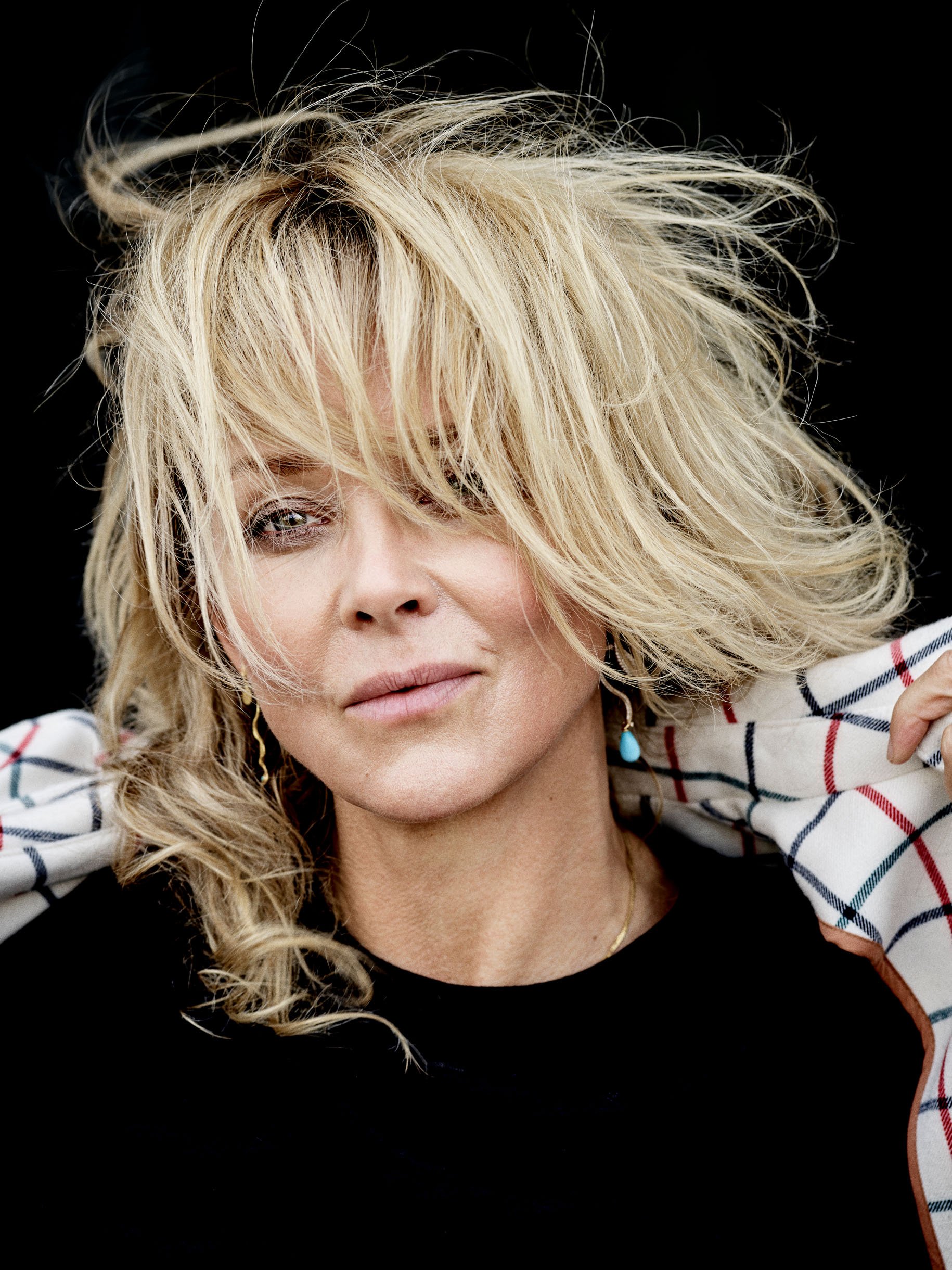

Success = Responsibility
In addition to a new name, the relaunch also had an impact on the actual business model. Naja Munthe wanted the brand to focus more on climate. Consequently, elements of several Munthe collections are made of organic and recycled materials.
“Sustainability and social responsibility are an integral part of Munthe and guide us every single day. For example, most of our transport from the East takes place by train, because trains emit much less CO2 than ships and planes. All our paper is FSC-labelled and all plastic is recycled or recyclable," says Naja Munthe.
“We also have a long history of raising money for the vulnerable and minorities – especially women and children. For me, it is a responsibility that comes with success - passing something on.”
Not Just for Decoration
The inspiration for Naja Munthe’s innovative, playful designs comes from everything: from bricks, rust, and art to a glimpse of a coat on the street or tea towels found in a flea market.
It might all sound very random. But, after 25+ years in the industry, this designer knows exactly what she is looking for and how even quite simple, mundane things can be transformed into beautiful new prints and silhouettes. This is evident in Munthe’s FW20 collection, which has just been launched.
“The key idea behind our FW20 collection is disruption - taking something familiar, breaking it down, and letting it re-emerge in a different form. We took gingham, old wallpapers, and recognisable Copenhagen motifs cut them up, and reassembled them in a new way. All with a touch of denim, leather, shiny materials and large, heavy knits,” says Naja Munthe.
“The DNA of Munthe is imbued with my taste, which fortunately changes continuously. But, in general, the collections are designed for a ‘normal’ life, in which people go to work, get together with friends, and move around in towns and cities. Nothing’s just for decoration.”
In 1994, Naja Munthe started the Danish brand Munthe. Today it’s famous for its urban, cool, artistic designs. Not just in Scandinavia, but throughout the world. Here she talks about her journey from start-up to frontrunner and what it takes to stay relevant in the fashion world for a quarter of a century.
“Absolutely nothing.” That’s how Naja Munthe sums up her ambition 26 years ago when she launched the fashion brand Munthe plus Simonsen with her former partner, Karen Simonsen.
Not that the Danish designer wasn’t ready for the challenge or passionate about her new business at the time. But never in her wildest dreams did she imagine that her own brand would become so big and relevant for as many years as it has been.
However, it only took a few years for Naja Munthe to make a name for herself in Scandinavian fashion - and a highly acclaimed name, in fact. Since going solo in 2009 and later relaunching the brand as Munthe, her bold, elegant everyday wear has also made a colourful impact on the international fashion scene. Like the designer, the style has evolved over the years. But the concept remains the same - not just for decoration.
Constant Evolution
Naja Munthe’s passion for design began when she was about 6 or 7 when she was allowed to borrow her mother’s old sewing machine and make clothes out of used sheets and tablecloths. Even then, she longed to be different, and that is still the overriding feature of the collections she creates today.
“I take pride in making a design that stands out - but without being too jarring. In a way, I have become even more open and curious over the years, and constantly try to challenge myself and evolve,” says Naja Munthe.
Keeping a fashion brand like Munthe relevant for so many years certainly requires the courage to innovate. According to Naja Munthe, it is all about being open – to other people’s opinions and to the changeability of your own taste and style.
“I’m all about wanting to change and evolve in my design. That’s why I have to maintain a certain ‘lack of sentimentality’ vis-à-vis myself and my product. Back in 2014, when I relaunched the brand, it was one of my points of orientation - along with a number of other things related to positioning the brand and more sustainable production.”
Be inspired by Naja Munthe



